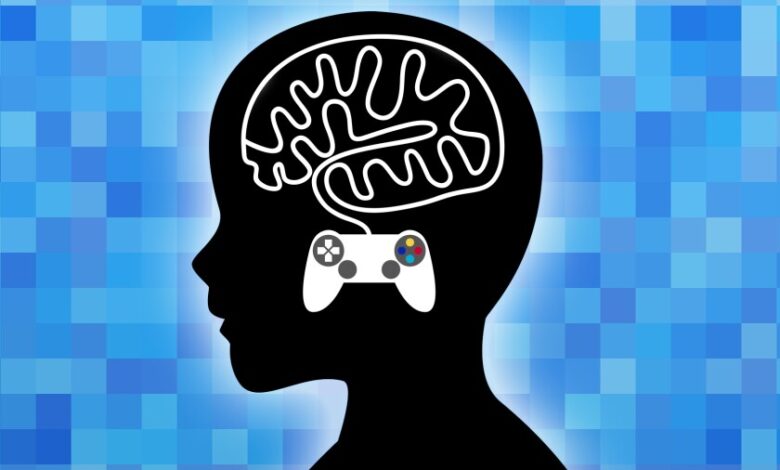
The human brain is an extraordinary organ, capable of adapting and growing in response to various stimuli. One such stimulus that can profoundly impact our cognitive development is gameplay, particularly strategy-based games such as mahjongg Solitaire. These games require critical thinking and can induce a state of flow characterized by a heightened focus and immersion in the task at hand. The increased cognitive demands of puzzle and strategy games activate multiple brain regions, resulting in a comprehensive mental workout that can enhance brain function and plasticity.
Memory and Pattern Recognition in Games
Identifying and matching tiles in games is not just a leisurely pastime; it’s a form of cognitive exercise that uses pattern recognition as its core. This type of recognition is essential for memory consolidation. It is a mental process that reinforces the connection between neurons when a new memory is formed. Repeating in the game can strengthen neural pathways, leading to faster and more efficient memory recall. The benefits of improved memory are far-reaching, potentially aiding in academic settings, work environments, and daily life scenarios where a keen memory is indispensable.
Focusing Attention Through Play
In a world where attention is constantly divided across multiple information streams, the ability to focus is considered a cognitive treasure. Tile-matching games challenge players to maintain a sustained concentration as they scan for possible matches, plan their next move, and adapt to new patterns emerging on the board. Through the engagement of attention networks in the brain, games can be valuable tools in the quest to improve our focus and concentration abilities. This learned focus can trickle into everyday tasks, making it easier to maintain concentration amidst distractions.
Strategic Thinking and Decision Making
Strategic thinking involves looking ahead, planning actions based on available information, and adjusting plans as necessary. Mahjongg solitaire excels in cultivating these capabilities through its gameplay. Each tile a player selects can drastically change their overall strategy once tiles are revealed later. This continuous strategic choice process encourages players to develop advanced decision-making skills. These skills are not confined to gaming; they spill over into real-world applications, allowing individuals to make calculated decisions under pressure in their personal and professional lives.
Mental Agility and Adaptive Thinking
Adapting quickly to changing circumstances is a mark of mental agility. While playing a game, the brain must constantly adjust strategies as the game progresses and new tiles are brought into play. This mimics real-life scenarios where flexibility in thinking is required, such as adapting to new technologies or overcoming unexpected problems. Being mentally agile is helpful for daily challenges, learning new skills, and creating innovative solutions. The unpredictability of this game makes it a prime candidate for nurturing a flexible, adaptable mindset.
Games, Stress Relief, and Relaxation
Stress reduction is another unexpected benefit of immersing oneself in strategy games. The singular focus needed to play mahjongg solitaire can act as a form of meditative practice, effectively silencing external anxieties. This can help manage stress levels, resulting in a more relaxed mind. Many people turn to games to unwind after a long day, and the calming effect of solving a challenging puzzle can provide a healthy outlet for relaxation. As we reduce our stress levels, our thinking becomes more apparent, and our mood improves, exemplifying the mind-body connection at work.
Building Social Bonds Through Gaming
Contrary to the belief that gaming is an isolating activity, it often serves as a conduit for social interaction and community building. Digital versions of classic games offer platforms for players to challenge each other, exchange strategies, and share their experiences. This creates a virtual environment conducive to making new friends and strengthening existing relationships, fostering a sense of belonging and emotional support. The social aspect of gaming shouldn’t be underestimated, as it contributes to our overall well-being and can counteract feelings of loneliness and isolation.
Gaming for a Sharper Future: Cognitive Longevity
As we age, cognitive engagement becomes increasingly crucial in maintaining mental health and vitality. Games that stimulate the brain might slow cognitive decline, aiding seniors in preserving their independence and quality of life. Research supports the idea that strategy games can be part of a proactive approach to extending cognitive longevity. Maintaining a routine that includes these mental challenges can contribute to a longer span of cognitive understanding, ensuring that our minds remain as agile as our bodies.
Young at Heart: Gaming Across Generations
The appeal of Mahjongg Solitaire transcends age barriers and can serve as a bridge between different generations. It provides a common ground for children, parents, and grandparents to connect through play. This shared experience can lead to mutual learning, understanding, and bonding. The cross-generational draw of such games also helps combat ageism by showing that intellectual engagement and enjoyment are possible at any stage of life.
Technological Advancements Enhancing Accessibility
The increasing availability and accessibility of digital games are a testament to the power of technology in democratizing cognitive enrichment opportunities. No matter one’s physical location or socio-economic status, these games are increasingly within reach, provided internet access exists. The ease with which they can be played on various devices ensures that the cognitive benefits are not exclusive but inclusive, inviting anyone interested to challenge their minds and enjoy the process.
Scientific Research Backs Cognitive Benefit Claims
Skepticism often surrounds claims about gaming’s benefits, making it crucial to base these assertions on scientific findings. Studies published by authoritative sources, such as Nature, lend credibility to the positive effects of games like Mahjongg Solitaire on cognitive function. The body of evidence supporting the notion that strategic games can enhance the mind’s abilities is growing, with future research expected to provide even greater insights into how these games influence our mental faculties.
Conclusion
As the evidence mounts, strategic tile-matching games are gaining recognition for their role in cognitive training and maintenance. Beyond simple entertainment, these games are emerging as valuable tools for nurturing the mind’s resilience and adaptability. As we better understand the relationship between gaming and cognitive health, the potential of these seemingly simple activities to impact mental fitness significantly becomes increasingly apparent.



